Religious Freedom
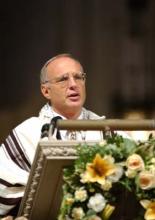
The Senate has confirmed Rabbi David Saperstein as the State Department’s ambassador-at-large for international religious freedom, making him the first non-Christian to hold the job.
Saperstein, who led the Reform Jewish movement’s Washington office for 40 years, focusing on social justice and religious freedom issues, was nominated by President Obama in July and confirmed by a 62-35 vote on Dec. 12.
Saperstein takes a liberal bent on domestic issues, and all but one of the votes against him came from a Republican.
“Religious freedom faces daunting and alarming challenges worldwide,” Saperstein said at his confirmation hearing in September. “If confirmed, I will do everything within my abilities and influence to engage every sector of the State Department and the rest of the U.S. government to integrate religious freedom into our nation’s statecraft and foreign policies.”
Saperstein, named the most influential rabbi in America by Newsweek magazine in 2009, will head the State Department’s Office of International Religious Freedom, where he will be tasked with monitoring religious freedom abuses around the world.

Is the pope Catholic? Is the president of the Christian student club Christian?
These questions might seem equal in their wry obviousness. They’re not. In the massive California State University system, as at some other universities, new anti-discrimination rules for student groups mean it can no longer be required that the president of the Christian student fellowship is Christian, or that the head of the Muslim association is Muslim, or that the officers of any group buy into the interests and commitments of that group.
Student clubs that refuse to accept the new rules will find themselves on the sidelines when it comes to meeting space, recruitment opportunities and other valuable perks that go with being an officially recognized group.
Such is the fate that has befallen InterVarsity Christian Fellowship, a national campus ministry that finds itself “derecognized” in the 450,000-student Cal State system for insisting that student leaders of its campus chapters affirm the basic tenets of evangelical belief.

A Russian pastor whose grandfather was killed for being a Christian toured the U.S. recently, studying church ministries and providing a rare, first-person look at Russia’s complex religious landscape after widespread persecution ended.
During Victor Ignatenkov’s youth under the Soviet regime, Christians could meet only for worship.
No Sunday school.
No midweek Bible study.
And definitely no proselytizing.
Today, Ignatenkov, 59, said he’s free to lead whatever activities he wants as pastor of the Central Baptist Church in his hometown of Smolensk — a city situated between the capitals of Russia and Ukraine — and as regional bishop for the Russian Union of Evangelical Christians-Baptist. The union is a group of evangelical Protestant churches that began emerging in Russia about 150 years ago as an alternative to the Russian Orthodox establishment.


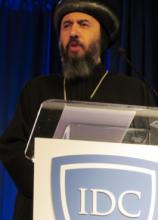
Watching ancient Christian communities stand nearly defenseless as Islamic militants roll across swaths of the Middle East, coalitions of Christians are banding together to sound the alarm and demand government action.
The most recent effort is a three-day conference (Sept. 9-11) in Washington, D.C., which gathered Orthodox Christians, evangelicals, Roman Catholics and others for prayer, speeches and a lobbying push on Capitol Hill.
“If Christian voices are able to ring out as one from Egypt to Syria to Iraq, Lebanon and Jordan, then we really do believe it will be possible for Middle Eastern Christians to survive,” said Andrew Doran, executive director of In Defense of Christians, which organized the conference.
Doran, who describes himself as a Catholic with a great affinity for Orthodox Christianity, said the gathering has shown how Middle Eastern Christians can put aside their sometimes 1,500-year-old disagreements and take up the cause of their beleaguered brethren.

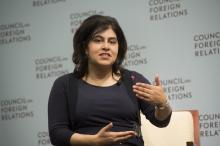
The first Muslim to serve in a British Cabinet resigned Tuesday over her government’s “morally indefensible” policies in Gaza and its role in the Middle East peace process.
Baroness Sayeeda Warsi, who served as senior Foreign Office minister for faith and communities, announced her decision on Twitter, saying: “With deep regret I have this morning written to the Prime Minister & tendered my resignation. I can no longer support Govt policy on #Gaza.”
In her resignation letter, Warsi wrote: “I believe our approach in relation to the current conflict is neither consistent with our values, specifically our commitment to the rule of law and our long history of support for International Justice.”
Labour leaders and human rights groups have criticized Britain’s Conservative government, led by Prime Minister David Cameron, in recent weeks for not unequivocally condemning Israel’s handling of the Gaza crisis.
Conservative leaders expressed disappointment over Warsi’s “unnecessary” resignation on Tuesday, while Labour opposition leader Ed Miliband said Warsi had acted with “principle and integrity” in deciding to step down.

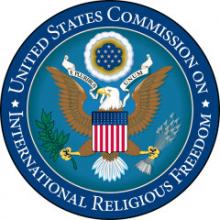
An independent religious freedom watchdog panel has welcomed the State Department’s annual religious freedom report and its list of the world’s worst offenders, which had laid dormant for three years.
The list of “countries of particular concern” had remained unchanged since 2006 — and hasn’t been formally issued by the State Department since 2011 — when Burma, China, Eritrea, Iran, North Korea, Saudi Arabia, Sudan and Uzbekistan were cited.
In April, the U.S. Commission on International Religious Freedom recommended that the list be doubled to include Turkmenistan, Tajikistan, Vietnam, Pakistan, Syria, Iraq, Nigeria, and Egypt. Turkmenistan was the only new addition to this year’s CPC list, bringing the total to nine countries.
The State Department and the independent USCIRF have often been at odds on who makes the list of worst offenders, and in a statement, USCIRF noted the “disappointing omission” of Pakistan in particular.
“Pakistan represents the worst situation in the world for religious freedom for countries not currently designated by the U.S. government as CPCs,” said USCIRF Chair Katrina Lantos Swett.

While last month marked the 25th anniversary of China’s silencing freedom in Tiananmen Square, this month China has been cementing this grim legacy — particularly regarding religious freedom.
During the just-concluded month of Ramadan, China denied Uighur Muslim students, teachers, professors, and government employees the freedom to fast and fulfill related duties. With Ramadan coinciding this year with the commemoration of the Communist Party’s founding, Chinese authorities used the occasion to identify fasting Muslims, particularly in Xinjiang province. Those defying the ban have been subject to threats, detention, and arrests.
In recent years, officials have shut down religious sites; conducted raids on independent schools, leading to multiple injuries and even deaths; confiscated religious literature; restricted private study of the Quran; monitored the sermons of imams and forced them to undergo political training; restricted Muslim dress and religious expression; banned children from being brought to mosques; and arbitrarily deemed religious gatherings and activities “illegal.”

President Obama on Monday said he plans to tap Rabbi David Saperstein as the next ambassador-at-large for international religious freedom, the first non-Christian to hold the job, which was created in 1998.
As ambassador, the man named as the most influential rabbi in America by Newsweek magazine in 2009, will head the State Department’s Office of International Religious Freedom, and will be tasked with monitoring religious freedom abuses around the world.
“When it comes to the work of protecting religious freedom, it is safe to say that David Saperstein represents the gold standard,” said Secretary of State John Kerry, announcing the nomination at the State Department.
A Reform rabbi and lawyer, Saperstein, 66, has led the Religious Action Center of Reform Judaism for 40 years, and has spent his career in Washington, focusing on social justice and religious freedom issues. He was instrumental in the 1993 passage of the Religious Freedom Restoration Act, which requires the government to show a compelling reason for any action that impinges upon the exercise of religion.

One of the toughest political calculations in Washington is balancing competing claims of gay rights with the traditional prerogatives of religious freedom. After a number of setbacks on that front, President Obama may have finally found a small patch of middle ground with Monday’s move to bar federal contractors from discriminating on the basis of sexual orientation.
Yet Monday’s action also leaves in place a 2002 order signed by President George W. Bush that gives religious groups with federal contracts some leeway by allowing them to use religious beliefs as a criterion in making hiring and firing decisions; as a candidate in 2008 Obama pledged to overturn that exemption.
At the same time, Obama did not expand the exemption to explicitly allow religious groups that receive federal funds to use sexual orientation as grounds for hiring and firing, as some demanded.

The Supreme Court on Monday sided with the evangelical owners of Hobby Lobby Stores Inc., ruling 5-4 that the arts-and-crafts chain does not have to offer insurance for types of birth control that conflict with company owners’ religious beliefs.
Beyond the specifics of the Hobby Lobby case before them, the justices broke new legal ground by affirming that corporations, not just individual Americans or religious non-profits, may claim religious rights.
Does Monday’s decision mean, however, that the religious beliefs of business owners stand paramount? That they are more important than a female employee’s right to choose from the full array of birth control methods she is promised under the Affordable Care Act? Or that a business owner may invoke his religious rights to deny service to a gay couple?
Not necessarily, legal experts say.
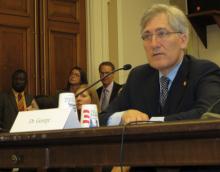
One of the nation’s leading — and official — champions of religious freedom implored the Obama administration to add Pakistan and Syria to the list of nations that most egregiously violate religious rights.
Before a congressional subcommittee on Thursday Robert P. George, chairman of the U.S. Commission on International Religious Freedom, said it makes little sense that the roster compiled by the U.S. has barely changed in a decade.
The congressionally chartered commission George heads recently advocated that the State Department add eight nations to the eight already designated as “countries of particular concern.” But among the recommended additions, he singled out Pakistan and Syria for their deteriorating and troublesome records on religious liberty.

When Vanessa Willock wanted an Albuquerque photographer to shoot her same-sex commitment ceremony in 2006, she contacted Elane Photography. The response came as a shock: Co-owner Elaine Huguenin said she only worked on “traditional weddings.”
“Yes, you are correct in saying we do not photograph same-sex weddings,” Huguenin responded.
Now 7 1/2 years after that e-mail exchange, the Supreme Court is considering whether to referee the dispute.
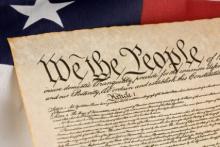
Conservative Christians are claiming that their religious freedom requires free rein for legalized discrimination.
That’s a clever argument. It seems to claim the moral high ground, to align itself with basic constitutional principles, and to put bigots in the victim role.
The argument is utter nonsense, of course. Freedom of belief has nothing to do with compelling other people to bow to that belief. If anything, freedom of belief should lead to a broad umbrella of diversity, not a parched patch of prejudice.
The First Amendment to the Constitution, after all, sought to guarantee freedom — of religion, speech, the press, assembly, and petitioning the government — not to grant freedom to some and not others, depending on the whims of the powerful or pious.
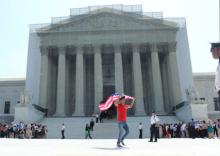
Arizona Gov. Jan Brewer may have ended the latest controversy in her state by vetoing a “religious freedom” bill that threatened gay men and lesbians, but the nation’s legislatures and courts are just getting started.
While religious liberty remains a “core value” in Arizona, Brewer said Wednesday, “so is non-discrimination.” And therein lies the balancing act that’s at the root of several other disputes.
The answer isn’t simple. Congress and the states often carve out exceptions for religious beliefs. The Supreme Court has consistently made room for religious exercise. And unlike race and gender, sexual orientation is not a protected class — yet.

My flight home from Phoenix over the weekend got pushed back, so I wound up spending an extra night at an airport hotel. Also, I got an $8 food voucher from the airline. I decided to eat at the hotel.
The restaurant was located on the top floor of the hotel with a nice view of downtown. There was a small bar near the entrance. A handful of hotel visitors were enjoying complimentary drinks and watching the Olympics on a flat-screen television.
I was greeted at the door by Melody, a transplant from Erie, Pa., who doubles as a bartender and a server. When I mentioned that I had a food voucher, she offered condolences for my scrambled travel plans. She also offered me a free beer.
Glass of red ale in hand, I picked a table in a corner of the restaurant, ordered a spinach salad and went back to reading a book about the Rev. Martin Luther King, Jr. and the long struggle to get the country to live up to its ideal that everyone should be treated as an equal child of God.
I couldn’t help but think about my 10 days in Arizona watching the state legislature debate and ultimately pass a bill that would allow business owners and individuals to refuse service to anyone on grounds of religious freedom. The impetus was a New Mexico case involving a photographer who refused to take photos of a gay couple.
The bill was promoted as a religious liberty issue. Opponents pointed out that it was the definition of discrimination — people would be singled out for unequal treatment.

Gay rights are colliding with religious rights in states like Arizona and Kansas as the national debate over gay marriage morphs into a fight over the dividing line between religious liberty and anti-gay discrimination.
More broadly, the fight mirrors the national debate on whether the religious rights of business owners also extend to their for-profit companies. Next month, the U.S. Supreme Court will decide whether companies like Hobby Lobby must provide contraceptive services that their owners consider immoral.
The Arizona bill, which is headed to Gov. Jan Brewer’s desk for her signature, would allow people who object to same-sex marriage to use their religious beliefs as a defense in a discrimination lawsuit.